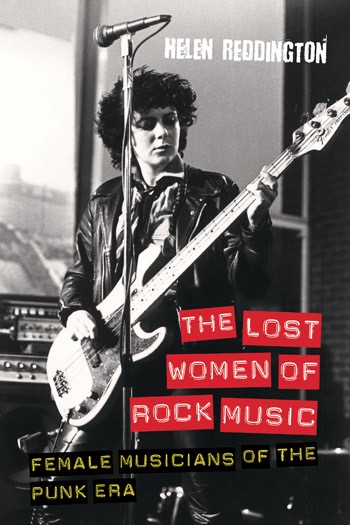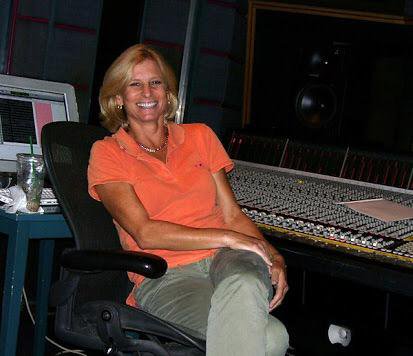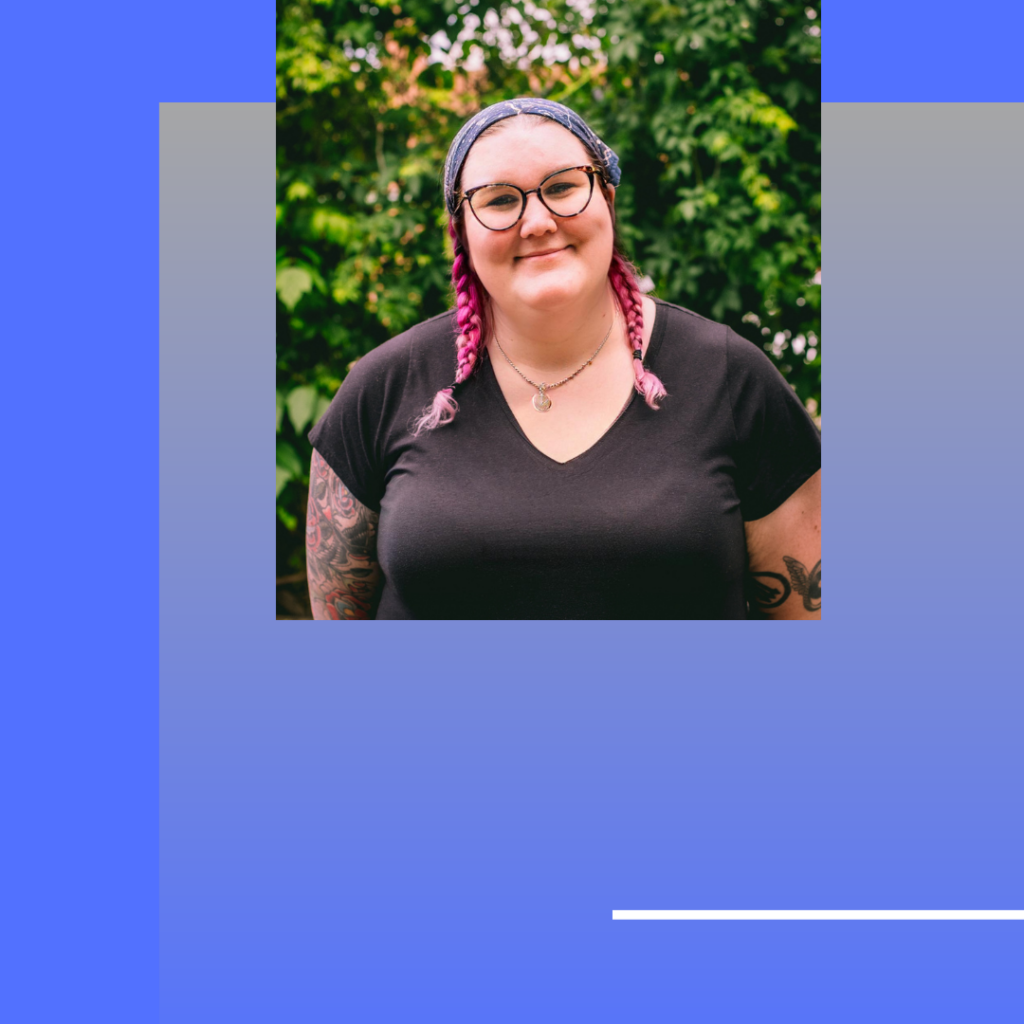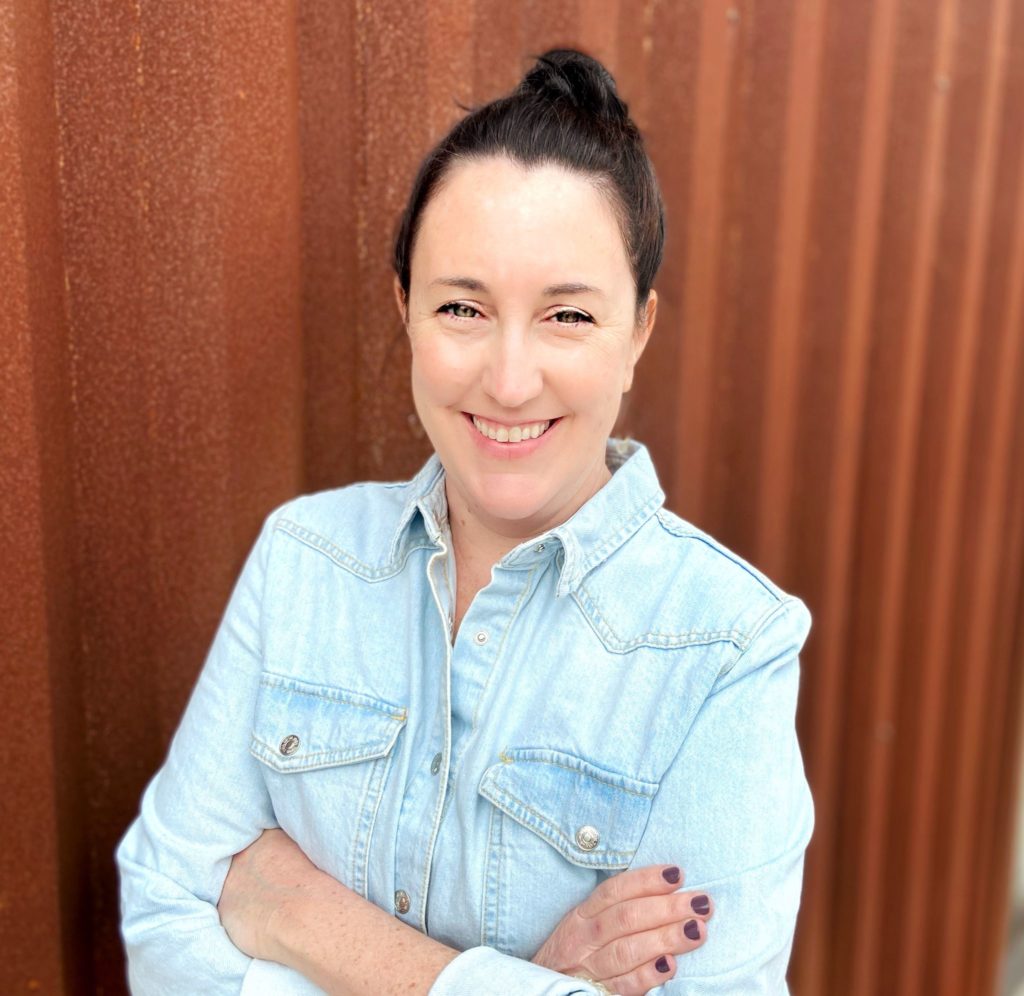 On a rainy Friday night, I’m drinking tea under the glow of fairy lights in the crowd that’s gathered to catch Helen McCookerybook on the Midlands leg of her solo tour. Dr. Helen Reddington’s pseudonym helps to distinguish the multi-faceted nature of her work, spanning from musician in the British Punk movement to academic and teacher, to solo musician, author, and filmmaker. Helen is an ambassador for telling women’s stories, and she kindly squeezes in time for a coffee with me the morning after the gig to tell me hers.
On a rainy Friday night, I’m drinking tea under the glow of fairy lights in the crowd that’s gathered to catch Helen McCookerybook on the Midlands leg of her solo tour. Dr. Helen Reddington’s pseudonym helps to distinguish the multi-faceted nature of her work, spanning from musician in the British Punk movement to academic and teacher, to solo musician, author, and filmmaker. Helen is an ambassador for telling women’s stories, and she kindly squeezes in time for a coffee with me the morning after the gig to tell me hers.
It’s like chatting with an old friend as we recall our highlights from the previous evening, compare notes on overcoming musician’s injuries, and discuss the similarities between knitting and sequencing, and the nonsensical myth that women’s brains aren’t conducive to working in these patterned methods. As we talk about her colourful life, I wonder how we will cover everything in time for the screening of Helen’s documentary “Stories From The She Punks” that afternoon. The film has been a natural progression following the publication of Dr. Reddington’s book “The Lost Women of Rock Music: Female Musicians of the Punk Era.” Created by Helen and fellow Punk musician Gina Birch, the film came about after Gina was interviewed for the book and suggested they make a film about it together.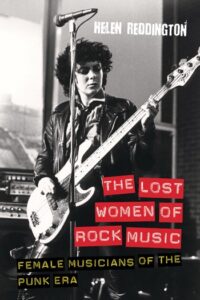
Q: Women are frequently omitted and written out of history, and you address that in so much of your work, particularly in this film.
“It still shocks me how much it gets covered up, because it was so important, that period of time. I think we interviewed 20 women for the film; there was easily another 20 we could have found. The women are people, people first. This is where feminism works, when it makes women into people, rather than the second sex or whatever, and they’re people’s stories. I think you can tell everyone’s quite proud of what they’ve done, but without trumpeting it, it’s just like actually we did this thing! We did it, you know? When you’re a creative person, there isn’t a point where you sit, and you say ‘oh yeah I’ve done it’ because you’re always looking at the next thing, and I think that’s what the film did for the people that we interviewed.”
The film focuses on the stories of women instrumentalists including Palmolive & Viv Albertine from The Slits, Enid Williams from Girlschool and Shanne Bradley from The Nipple Erectors. Helen tells me she’s trying to encourage Shanne in particular to write her biography.
“She auditioned Shane McGowan from The Pogues for his first ever band, The Nipple Erectors with Shanne, and she was there right at the beginning. She knows so many people and did so many things, and she appears in Punk Histories, there’ll be a photograph of her, and it’ll say ’unknown woman.’ You can’t be an unknown woman; you’ve got to write your story!”
Q: You’re currently editing your next book on the topic of women engineers and producers. Can you tell us about that?
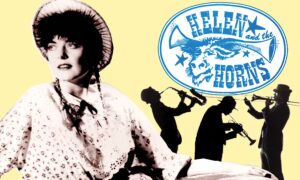 “It came about through the experience of working with producers and never getting the vocal sound that I wanted, and also working in Higher Education and always seeing the guys in that environment. In 2002 I did an academic study and found the guys already learn at school and get a head start on music tech. I ran parallel classes; one for guys and one for girls. During one session, a girl came to the guy’s class by mistake, and within 10 minutes a guy had borrowed a pen from her, and someone else had borrowed her bag to lean on, so she was put into this position of being a supplier. It was really interesting psychology, and the girls loved the class. I started finding women to interview while touring – I decided every place I went to. I would find a female engineer or producer because the spread of activity under that umbrella is really wide.”
“It came about through the experience of working with producers and never getting the vocal sound that I wanted, and also working in Higher Education and always seeing the guys in that environment. In 2002 I did an academic study and found the guys already learn at school and get a head start on music tech. I ran parallel classes; one for guys and one for girls. During one session, a girl came to the guy’s class by mistake, and within 10 minutes a guy had borrowed a pen from her, and someone else had borrowed her bag to lean on, so she was put into this position of being a supplier. It was really interesting psychology, and the girls loved the class. I started finding women to interview while touring – I decided every place I went to. I would find a female engineer or producer because the spread of activity under that umbrella is really wide.”
Helen tells me about some of the 30 women she worked with for the book; they range in age from 22-70 across genres, all took different routes into the industry and all experienced different levels of acceptance. Additionally, they all had different attitudes and ideas about what production actually is.
“I interviewed Yvonne Shelton, a Gospel Choir producer in Manchester, which is quite a niche, as was another producer who programmes cheerleader music and mashups. I worked with Janet Beat, one of the first electronic music composers, as well as reggae, analogue and grime producers.” Dr. Reddington tells me about interviewing Susan Rogers, sound engineer to Prince.
“She came into it through repairing equipment, and that is such an interesting route into it. She was told when she was learning that there was no way that she was ever gonna be able to engineer, so she might as well learn how to fix studio gear. And she was actually fixing the gear for Prince’s studio, and then one day he just said ‘put the tape on’ and she said, you know, ‘I can’t do this, cause this is your engineer’s job,’ and he just said ‘that’s you.’ He’d kind of got to see how much she knew, and because of the way that he worked he actually wanted somebody who knew that side of things, cause he knew everything else, but that’s how come she started doing that.”
“The book has the working title of ‘Gender Ventriloquism’ because it’s that thing where a male producer, contextualised in a kind of history for example Nile Rodgers saying stuff like ‘I could make your secretary a star’ and like feeding Sister Sledge a line at a time, not allowing them to listen to a whole song, so that he’s completely in control of what’s happening, which for singers is completely disempowering. Dance producers just sampling female voices and taking them away from a body or any sort of agency, so it’s this idea, I call it Gender Ventriloquism. I’ve written something academic for the International Association of the Study of Popular Music where a male producer takes a female voice and makes them sound like men want to hear, rather than what the woman wants to sound like. What really freaked me out is being brought up on girl group music which is actually even written by men, and it’s all like the girls want to have sex with the men, sung by teenage girls, and that was my instruction on how I should be as a teenager – by men! And it’s so wrong, and it’s still happening. I got the article through by talking about instances where women produced men because that does happen, so I balanced it up, and I think that made it a bit less kind of controversial. But there’s not any punches pulled in the actual book, because it’s a historic. And all I’m doing is pulling out what’s actually happened in history and putting it all together in one place.”
Q: You’ve said how happy you are with your choice to take a break from music while you raised your daughters, and how pleased you are to be back again on the live scene now.
“There wasn’t any support from anybody, even the male musicians I knew, it was like ‘oh no, you’re a mother’ so if I’d have done it then I wouldn’t have felt confident. I’m really glad that I put the girls first. I take inspiration from blues ladies like Rosetta Thorpe and Etta Baker if they could do it so can I. I’ve seen how life could have gone, and that’s not an option. Whatever piles up, I’ll carry it, and it’ll make me stronger. Playing live is the closest you can get to flying.”
Q: What advice would you give to women and girls in the industry?
“The most important thing to me is that people actually write their own stories. Everybody, it’s really important. Keep a diary of what you’re doing, because by doing that you put yourself into some sort of history, and when you’re feeling ignored, you look at your diary and you push it out there, and you say look what I’ve done.”
You can find more from Dr. Helen Reddington at www.mccookerybook.com
